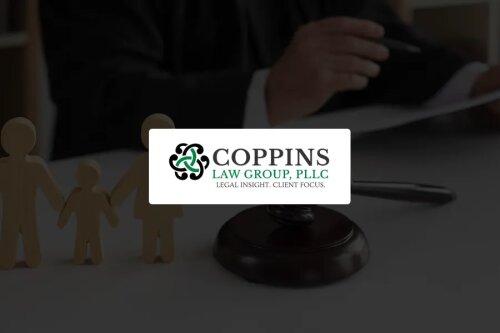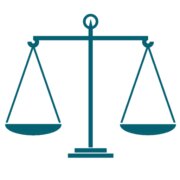Best White Collar Crime Lawyers in New York
Share your needs with us, get contacted by law firms.
Free. Takes 2 min.
Or refine your search by selecting a city:
List of the best lawyers in New York, United States
About White Collar Crime Law in New York, United States
White collar crime in New York refers to a broad category of non-violent, financially motivated offenses typically committed by professionals, businesspeople, government officials, or organizations. These crimes often involve deceit, fraud, or a breach of trust rather than physical force or violence. Common examples include securities fraud, embezzlement, insider trading, tax evasion, money laundering, and bribery. Both state and federal laws can apply, and convictions can carry significant penalties such as heavy fines, restitution, and lengthy imprisonment.
Why You May Need a Lawyer
White collar crime cases are complex, involving large volumes of documentation, financial records, and often lengthy investigations. You may need a lawyer if you are:
- Under investigation for a financial or business-related offense
- Charged with fraud, embezzlement, or similar crimes
- Concerned about compliance with federal or state financial regulations
- A business or individual facing civil or criminal liability for alleged financial misconduct
- Being subpoenaed or contacted by law enforcement about your business practices
- Seeking to defend your professional license or reputation
Legal representation is essential because white collar cases often cross into both state and federal jurisdictions, and they require expert analysis of complex legal and factual issues.
Local Laws Overview
White collar crime in New York is prosecuted under both New York state law and federal statutes. At the state level, the New York Penal Law contains numerous offenses classified as white collar crimes, such as:
- Grand Larceny (Penal Law Article 155) - The theft of property or funds, often through embezzlement or fraudulent schemes.
- Forgery and Falsifying Business Records (Articles 170 and 175) - Involving the creation or alteration of documents for unlawful purposes.
- Securities Fraud - Covered under the Martin Act, New York's powerful securities regulation statute.
- Identity Theft (Penal Law Article 190.80 et seq.) - Unlawful use of another person's identity for financial gain.
Federal crimes prosecuted in New York include mail and wire fraud, tax evasion, health care fraud, and more. Agencies like the FBI, IRS, SEC, and local District Attorney's Offices often collaborate on investigations. Penalties can range from misdemeanor charges to felonies with multiple years of imprisonment, asset forfeiture, and loss of professional licenses.
Frequently Asked Questions
What is considered a white collar crime in New York?
White collar crime typically refers to non-violent offenses committed for financial gain, such as fraud, embezzlement, insider trading, tax evasion, and bribery.
How are white collar crimes investigated in New York?
Investigations often involve state and federal agencies, including law enforcement, forensic accountants, and regulatory authorities. Subpoenas, document reviews, and interviews are common tools.
Can I be charged federally and by New York State for the same offense?
Yes, it is possible to face both state and federal charges for the same conduct, particularly when the actions violate both New York law and federal statutes.
What are the possible penalties for white collar crime?
Penalties include imprisonment, fines, asset forfeiture, restitution to victims, probation, and potential loss of professional licenses or business operations.
If I am contacted by investigators, should I speak to them without a lawyer?
It is strongly recommended to consult with a lawyer before communicating with investigators to protect your rights and avoid self-incrimination.
Are there defenses available against white collar crime charges?
Yes. Common defenses include lack of intent, insufficient evidence, entrapment, mistake of fact, and procedural violations during investigation or prosecution.
Can my assets be frozen or seized during a white collar crime investigation?
Authorities may seek to freeze bank accounts or seize assets believed to be associated with alleged criminal conduct, particularly in cases of fraud or money laundering.
How long do white collar crime cases usually take?
These cases can take months or even years to investigate and resolve, due to their complexity and the amount of evidence involved.
Will a conviction affect my ability to work in my profession?
A conviction can lead to loss of professional licenses, disqualification from certain industries, and reputational harm, making future employment difficult.
What should I look for in a white collar crime defense lawyer?
Seek an attorney with experience handling complex financial cases, knowledge of both state and federal law, trial experience, and an understanding of regulatory agencies.
Additional Resources
If you are seeking more information or help regarding white collar crime issues in New York, the following resources may be helpful:
- New York State Attorney General’s Office
- New York County District Attorney’s Office Financial Frauds Bureau
- Federal Bureau of Investigation (FBI) - New York Field Office
- U.S. Securities and Exchange Commission (SEC)
- Internal Revenue Service Criminal Investigation Division (IRS-CI)
- New York City Bar Association - Legal Referral Service
Next Steps
If you believe you are under investigation or have been charged with a white collar crime in New York, it is vital to act quickly. Here are some recommended steps:
- Do not speak to investigators without first consulting an attorney
- Gather all relevant documents and correspondence related to your case
- Contact a qualified white collar crime defense lawyer as soon as possible
- Discuss all aspects of your situation openly and honestly with your attorney
- Follow your attorney's advice regarding communication and next steps
Timely, experienced legal guidance can make a significant difference in the outcome of a white collar crime investigation or prosecution. Do not delay in seeking professional legal representation to protect your rights and interests.
Lawzana helps you find the best lawyers and law firms in New York through a curated and pre-screened list of qualified legal professionals. Our platform offers rankings and detailed profiles of attorneys and law firms, allowing you to compare based on practice areas, including White Collar Crime, experience, and client feedback.
Each profile includes a description of the firm's areas of practice, client reviews, team members and partners, year of establishment, spoken languages, office locations, contact information, social media presence, and any published articles or resources. Most firms on our platform speak English and are experienced in both local and international legal matters.
Get a quote from top-rated law firms in New York, United States — quickly, securely, and without unnecessary hassle.
Disclaimer:
The information provided on this page is for general informational purposes only and does not constitute legal advice. While we strive to ensure the accuracy and relevance of the content, legal information may change over time, and interpretations of the law can vary. You should always consult with a qualified legal professional for advice specific to your situation.
We disclaim all liability for actions taken or not taken based on the content of this page. If you believe any information is incorrect or outdated, please contact us, and we will review and update it where appropriate.
Browse white collar crime law firms by city in New York
Refine your search by selecting a city.
















